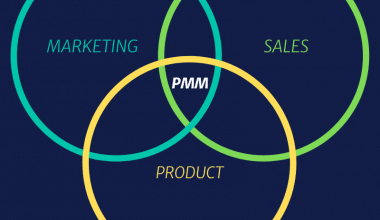Every organization needs a project manager. This is because the role of a project manager is essential, as he must ascertain and carry out the customer’s precise needs based on their understanding of the firm they represent. To effectively manage every part of the project, the project managers need to be experts in the field in which they operate. Project managers are also part of the highest-paid professions. How, then, can you become a project manager? This is why you have to continue reading. The remaining part of this article explains how you can be a project manager even without experience. Do you also know that you can become a project manager without a degree? Read on!
Who Is a Project Manager?
A project manager is a qualified expert in the discipline. In any effort with a specified scope, defined start, and defined completion, regardless of industry, project managers are responsible for the planning, procurement, and execution of a project.
As the project representative, project managers serve as the initial point of contact for any concerns or disagreements between the leaders of different departments in a business.
To ensure that the crucial factors of cost, time, quality, and, most importantly, customer satisfaction, can be accomplished, one must be able to adapt to the varied internal processes of the client and establish close relationships with the designated representatives.
Project Manager Qualifications
Depending on the organization and the position being filled, the meaning of project manager qualifications might alter. A qualified project manager has the personality, knowledge, and experience required for the job.
At least three years in a comparable function, communication skills, formal education, and a PMP certification are the norms for qualifications.
A professional organization, a school or institution, or a program of online learning with a narrow concentration are all options for obtaining certification.
How To Become a Project Manager
To become a project manager, one can take one of two main professional paths.
The “conventional” method is to become a project manager, obtain a qualification, and then accept a position in that capacity.
Alternatively, you can maintain acquiring project management experience and move up the project management career ladder without obtaining a degree, certification, or any other form of “traditional” project manager education.
#1. The Conventional Project Manager
This is someone with a degree or certificate in project management who has consciously chosen to pursue a career in this field.
#2. Non-project managers who manage projects
An inadvertent project manager is another term for this. These individuals never intended to manage projects but still discover that they do so daily. It may be marketing, organizing a campaign, a product manager coordinating the creation of a new product, or a web designer developing a new website. They move about with us.
This is terrific news for anyone pondering how to enter the project management field because it indicates more routes than ever to climb the professional ladder.
How To Become a Project Manager In Construction
#1. Education
Before beginning their careers, construction project managers often need a bachelor’s degree in a field related to the construction industry, such as civil engineering. Undergraduate students have the option of enrolling in courses in economics, architectural design, and materials.
A master’s degree in construction management can help construction project managers develop their careers. Graduate-level coursework emphasizes how construction management ideas can be applied in real-world contexts, such as labor relations, safety, and public policy.
#2. Amass experience in construction
To become a construction manager, you must have prior construction experience. This experience, which can be obtained through internships, apprenticeships, or managerial support, offers practical training and an understanding of how construction sites are run.
#3. Get certification
Through organizations like the Construction Management Association of America, individuals can obtain various pertinent certifications (CMAA). A voluntary designation shows dedication to lifelong study, professional development, and effective leadership.
#4. Create your resume
Include your greatest education level, applicable certificates, and professional experience. Showcase your accomplishments that are specialized to your field or that make use of your transferrable talents. Your CV will stand out from other applicants if it is succinct, pertinent, and transparent.
#5. Submit applications for roles you qualify for
After researching the local job market, submit applications for roles you meet the requirements for. Your candidacy for the position will be highlighted by writing an engaging cover letter emphasizing your specific abilities and qualities.
How To Become a Project Manager Without Experience
If you want to pursue a career in project management but lack the necessary experience, think about taking the following actions:
#1. Demonstrate fundamental abilities
Employing managers could search for individuals who exhibit project management skills in their resumes and during interviews. The following are some abilities you would want to emphasize while hiring:
- Communication: Project managers must interact with groups of people interested in the project, either as stakeholders or team members, making communication one of their most essential duties.
- Organization: As a project manager, you must monitor several project elements. To keep the project on track and within budget, a high level of organization and attention to detail are needed.
- Leadership: You’ll probably have to lead people on a project you’ve never worked closely with. Because of your strong leadership qualities, you can encourage your team members to finish their work on schedule and make them feel at ease around you and your project management responsibilities.
#2. Have a mentor.
You can get career advice from a mentor who has succeeded as a project manager. To find a mentor, you can join professional associations. If your current employer has project managers, you can ask one of them if they would be willing to be your mentor.
#3. Become licensed
One of the most well-known project management credentials is the Project Management Professional (PMP). Still, to sit for the exam, you must have three years of project management experience and some schooling.
However, the Certified Associate in Project Management (CAPM) qualification is frequently a preferable choice if you have minimal prior project management experience.
#4. Look for Educational options
You can probably find several training possibilities if you’re thinking about becoming a project manager to learn more about the job’s responsibilities and the tools experienced project managers utilize. Check out conferences, webinars, online learning environments, and project management firms for courses.
#5. Complete your undergraduate studies.
While having a bachelor’s degree to work as a project manager may not be necessary, many hiring managers may do so or, at the very least, mention it as a requirement.
How To Become a Project Manager Without a Degree
Here are some tips on how to get into project management without any experience if you’re starting to notice that you enjoy the excitement of the project management portion of your job more than any other component of it.
#1. Recognize your knowledge gaps in project management.
You’ve probably been polishing your project management skills throughout your career, regardless of the job you’re now playing — marketer, designer, developer, etc.
There are ten essential project management “knowledge domains,” according to the PMBOK Guide published by the Project Management Institute:
- Integration supervision
- Scope control
- Schedule control
- Controlling costs
- Quality control
- Resource administration
- Management of risk
- Communication control
- Purchasing management
- Participant management
Consider the recent tasks you’ve worked on. Which of these activities have you engaged in?
Perhaps you were crucial in defining the project’s scope, schedule, or plan. Perhaps you were the one who created the budget and was successful in keeping things on track when unanticipated expenses appeared.
Or you assisted in redistributing team members’ resources so that nobody was overloaded. All of those project management abilities are necessary for a competent project manager.
On the other hand, it’s possible that you haven’t had much exposure to other knowledge fields. In that scenario, you know precisely what you should concentrate on to get the knowledge required to develop into a more experienced project manager.
#2. Acquire project management knowledge
It’s time to start executing your plan after determining where to expand. That is what project managers do daily. This is because starting to gain experience is the best thing you can do if you want to become a project manager without experience.
Projects surround us, so get involved when you can. Develop your time management, scheduling, and organizational abilities, as well as everything else mentioned in step #1.
#3. Study project management as much as you can.
Always look for chances to expand your project management expertise and knowledge. You can do this by;
- On-the-job training
- Recover from your errors.
- Studying other project managers’ lessons (in your company or elsewhere).
- Find a mentor who will share their project management tricks with you if you can.
Take one of the numerous online project management courses offered on websites like Udemy or Coursera if you want to further your education as a project manager but aren’t yet ready to commit completely.
You may also look for conferences or local networking events to stay current on industry trends and network with people who can guide you along the project management career path.
#4. Use the appropriate project management tools now.
You can improve your project management skills by using a pm tool.
In addition to managing all your project resources in one location, it enables you to automate your work, instantly assign tasks to groups of teams, see projects in Gantt charts, and view projects in Gantt charts.
When you manage your work with a versatile and user-friendly project management platform like teamwork, you can get started immediately without investing much time in training or onboarding.
Project Manager Course
Your business and career can both benefit significantly from learning project management. These abilities can be acquired without an expensive degree. Online courses in project management are widely available for free.
#1. Alison: Alison has a project management diploma.
Several project management courses are available from Alison, including their diploma in Project Management. Project management case studies, project management history, and project manager interviews are all topics covered in this course.
They will guide you through project management techniques like PERT charts and the Critical Path Method.
#2. edX: edX also has courses on project management
To offer a variety of project management courses, like Introduction to Project Management from the University of Adelaide, edX collaborates with recognized universities and professional organizations worldwide.
Project Manager Salary
The pay of a project manager varies depending on where they work and their level of expertise. The average project manager income in the United States is $75,474, and extra cash benefits can range from $1,541 to $19,755, according to Glassdoor.
Consequently, the annual salary of a PM might range from $51,000 to $110,000. However, this project lead compensation can be significantly lower or greater depending on your abilities, knowledge, and experience.
In the next ten years, annual pay for project managers at all levels is anticipated to increase due to the continued high demand for project management employment.
This analysis of the rise of project management jobs might help you decide whether project management will still be in demand. Businesses are focusing more on actual projects than on usual routine tasks.
How Long Does It Take to Become a Project Manager?
If you have prior managerial expertise, you could advance to project manager status in months. Building up your expertise and credentials may take a few years if you’re just getting started on the path to project management, but the benefits will be worth it.
How Do You Start As a Project Manager?
When we start a new project, project managers lay out its significant goals, function, and scope. They also discuss shared expectations, identify important internal and external stakeholders, and secure approval to advance a project.
How To Become a Project Manager FAQs
Is it possible for anybody to manage a project?
Yes, that is the reply. Anyone can become a great project manager, even if they don’t have the necessary skills. All it takes is commitment, perseverance, and passion.
What credentials are necessary to become a project manager?
Essentially, a qualified project manager possesses the personality, knowledge, and experience required for the job. A PMP certification, professional training, the ability to communicate, and at least three years of experience in a comparable capacity are typically required.
Conclusion
We have explained how you can start as a project manager. Follow the step-by-step procedure and get started.
- PROJECT TRACKING SOFTWARE: Reviews of Top 25 Project Tracking Software
- PROJECT MANAGER QUALIFICATIONS: What You Should Know, Steps to Follow, and Salary
- Agile Project Management Tools; Definition, Uses & List of APM.
- Project Management Tools Google; All You Need To Know.
- How To Get Into Project Management; Definition, Guide & Requirements.
- Project Management Systems; Best 2023 Tools For Project Management.






